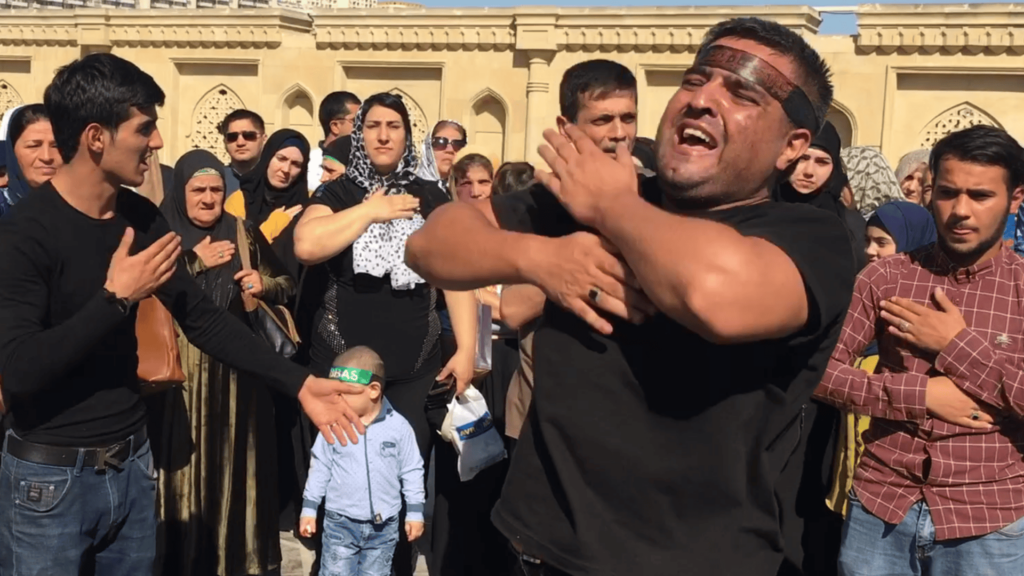Ashura in Azerbaijan: women banned from crying, children barred from entering mosques
Ashura in Azerbaijan
This year, Ashura in Azerbaijan was marked by unprecedented restrictions. Many mosques introduced bans on certain religious rituals. Social media users reported that people were not allowed to recite mersiye (funeral elegies), beat their chests, or even cry.
Ashura is the tenth day of the sacred month of Muharram in the Islamic calendar and a day of mourning, especially significant for Shia Muslims. On this day in 680 AD (61 AH), the Prophet Muhammad’s grandson, Imam Hussein, along with 72 companions, was killed by the army of Umayyad Caliph Yazid on the plains of Karbala (in present-day Iraq). This event led to the split in the Muslim world between the Shia, who supported Hussein, and the Sunni, who followed Yazid—a divide that remains a source of conflict to this day.
Thus, the day is a time of mourning specifically for Shia Muslims. Sunnis also mark Ashura, but for different reasons. According to the Quran, it is the day when the heavens, the earth, and humanity were created—and the Day of Judgment will also fall on this date.
In Azerbaijan, Ashura is observed as a day of faith, martyrdom, and resistance, especially in regions such as Baku, Nardaran, Lankaran, Masalli, Ganja, and others. Around the world, Shia communities commemorate the day by reciting elegies (marsiya), beating their chests, weeping, and holding tragic theatrical performances (ta’zieh). Historically, many also practiced self-flagellation to express grief. However, religious leaders have long encouraged people to donate blood instead.

Among those affected by the new restrictions this year was journalist Arzu Abdulla Gulzaman. She described her experience at the Edjerbey Mosque in Baku.
According to her, the mullah and akhund did not allow the reading of elegies (marsiya), and police officers stated: “The government does not allow crying.”
“This was a gathering in honor of Imam Hussein (peace be upon him). But we were told that Ashura was yesterday and today we are not allowed to mourn — even though Ashura actually falls on July 6, and we gathered in accordance with our faith,” said Gulzaman.
Date discrepancy
The state-controlled Caucasus Muslim Board declared that Ashura would be marked on 5 July this year. However, for the Shia community, the actual date of Ashura fell on 6 July.
The discrepancy led to religious events being officially held on 5 July, while commemorations on 6 July were effectively prohibited.
Many within the Shia community saw this as an attempt by the government to tighten its grip on their religious life through state-sanctioned structures.
Children banned from mosques: psychological reasoning and public backlash
One of the most debated aspects of this year’s Ashura was the ban not only on women, but also on children entering mosques. As reported earlier by JAMnews, schools and parents were warned in advance not to bring children to the ceremonies.
Social worker Sanubar Geydarova told JAMnews that while the authorities claim the move is intended to “protect children’s mental wellbeing,” she sees it as interference in the personal and family freedom to participate in religious rituals:
“If children are taken to military events filled with imagery of blood, death, weapons and heroism — why is participation in religious ceremonies considered a problem?” Geydarova asks.
Experts: “This is ideological pressure on the Shia community”
Lawyer Khalid Bagirov, in a previous comment to JAMnews, stated that such interference in religious ceremonies constitutes a violation of the right to freedom of conscience and religion, as guaranteed by Azerbaijan’s Constitution.
According to him, restrictions justified by “public safety” or “public order” are often rooted not in legal grounds, but in political decisions.
Alemdar Bunyatov, a representative of the Muslim Unity Movement in Europe, believes this approach reflects a clearly hostile stance by the state toward the Shia community:
“This is not merely a matter of regulation — it is a fight against religious and cultural identity.”
Pressure on Shia community amid tensions with Iran
The restriction of Ashura ceremonies in Azerbaijan is not just a matter of religious freedom. These events unfold against the backdrop of broader geopolitical and ideological tensions.
Seeking to keep the Shia community under control, the Azerbaijani government has taken pre-emptive measures against perceived Iranian influence within the country. Since many Azerbaijani Shia follow the fatwas of high-ranking Iranian clerics — ayatollahs — the authorities view this as a potential threat.
As a result of these ties, religious activists have been charged with “collaboration with Iran,” “incitement against the state,” and even “possession of drugs and weapons,” leading to lengthy prison sentences.
According to Alemdar Bunyatov, this has become a systemic policy of pressure on the Shia community:
“In Azerbaijan, believers who follow Shia Islam are persecuted solely because of the way they worship. The state interprets their style of prayer as Iranian influence and turns them into criminal targets. This is, in essence, a campaign against freedom of religion.”
At a deeper level, the government seeks to assert control over religious independence in the country, impose a unified religious policy through the Caucasus Muslim Board, and weaken the influence of Iran’s top spiritual authorities.
State-managed faith
Religious freedoms in Azerbaijan have long been regulated through official institutions and law enforcement. This year’s Ashura made it clear that this control now extends not only to the organisation of ceremonies, but also to their content — the tears, the marsiya, and even the breaking of silence.
The contradiction between the Shia community’s right to gather and worship according to their religious calendar and the state’s drive to impose a unified religious policy is becoming increasingly stark.




















